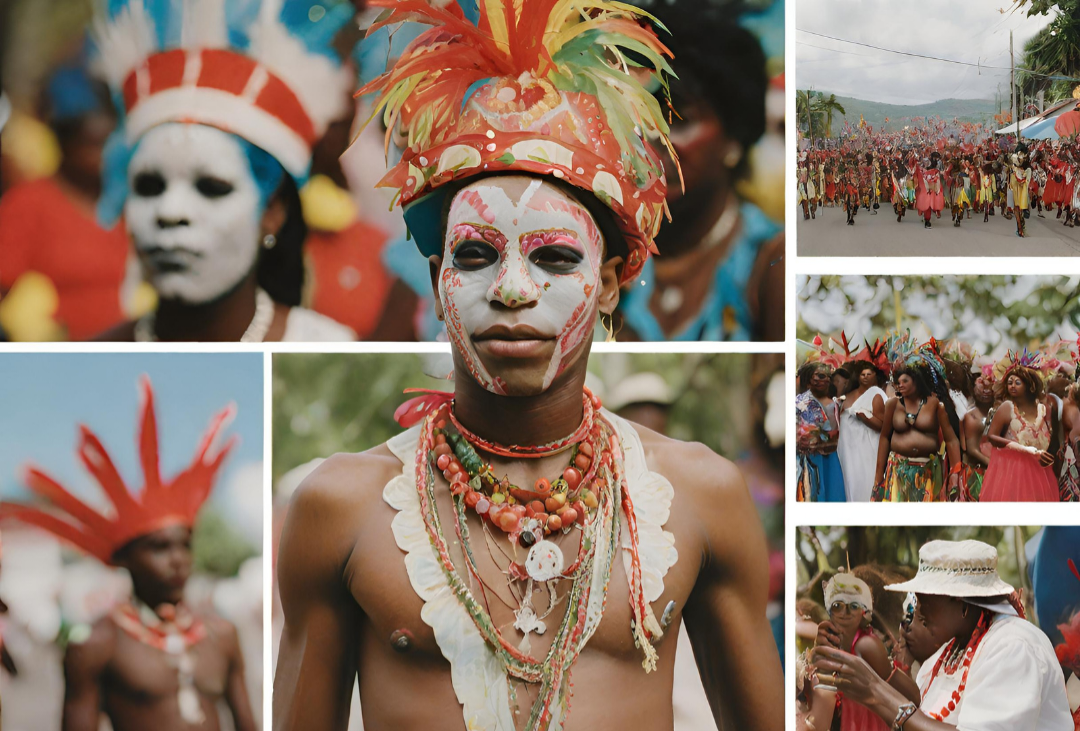In the intricate tapestry of global culture, the African diaspora weaves a vibrant and diverse narrative that spans continents. This article delves into the rich dialogues and connections that define the African diaspora experience, exploring how communities across the globe are forging bonds, celebrating shared heritage, and contributing to a global tapestry of unity.
The African diaspora, a dispersed community of people with African heritage living outside the continent, has played a pivotal role in shaping the cultural, social, and economic landscapes of diverse regions. This article aims to explore the dynamic dialogues and connections that link diasporic communities, fostering a sense of unity and shared identity.
 1. Harlem Renaissance: Cultural Resurgence in the United States
1. Harlem Renaissance: Cultural Resurgence in the United States
In the early 20th century, the Harlem Renaissance emerged as a cultural and artistic movement among African Americans in the United States. From literature and music to visual arts, this period saw a flourishing of creativity that not only celebrated African heritage but also laid the foundation for a global dialogue on Black identity and culture.
 2. Afro-Latinx Identity: Bridging African and Latin American Cultures
2. Afro-Latinx Identity: Bridging African and Latin American Cultures
The Afro-Latinx community represents a vibrant intersection of African and Latin American cultures. From the rhythms of Afro-Cuban music to the celebrations of Carnaval in Brazil, Afro-Latinx communities contribute to a dynamic dialogue that transcends borders, emphasizing the interconnectedness of diverse cultural expressions.
 3. Caribbean Connections: Shared Heritage and Resilience
3. Caribbean Connections: Shared Heritage and Resilience
The Caribbean, with its mosaic of cultures, has been profoundly shaped by the African diaspora. From the spiritual traditions of Vodou in Haiti to the vibrant Carnival celebrations in Trinidad and Tobago, the connections between Caribbean nations reflect a shared history and resilience that transcend geographical boundaries.
 4. Afro-European Perspectives: Navigating Identity in the Diaspora
4. Afro-European Perspectives: Navigating Identity in the Diaspora
In Europe, Afro-descendant communities navigate the complex terrain of identity, bridging African heritage with European experiences. The Afro-European dialogue encompasses discussions on representation, equality, and the acknowledgment of diverse cultural contributions, fostering a sense of belonging and empowerment.
 5. Pan-Africanism: Fostering Unity Across Continents
5. Pan-Africanism: Fostering Unity Across Continents
Pan-Africanism, a movement that seeks to promote solidarity among people of African descent, serves as a powerful catalyst for dialogue and collaboration. Through events like the Pan-African Festival (FESTAC) in Nigeria and the Pan-African Film and Television Festival of Ouagadougou (FESPACO), the diaspora engages in conversations that celebrate shared heritage and address common challenges.
The African diaspora is a living testament to the resilience, creativity, and interconnectedness of communities that have traversed continents. The dialogues that unfold within and between these communities are a source of strength, unity, and cultural richness.
As we navigate the complexities of identity, history, and shared experiences, it becomes evident that the African diaspora is not a monolithic entity but a kaleidoscope of diverse narratives. By recognizing and fostering these dialogues, we contribute to a global conversation that celebrates the contributions of the African diaspora and promotes a deeper understanding of our shared humanity. Across continents, the threads of these dialogues weave a tapestry that reflects the beauty, strength, and enduring spirit of the African diaspora.



